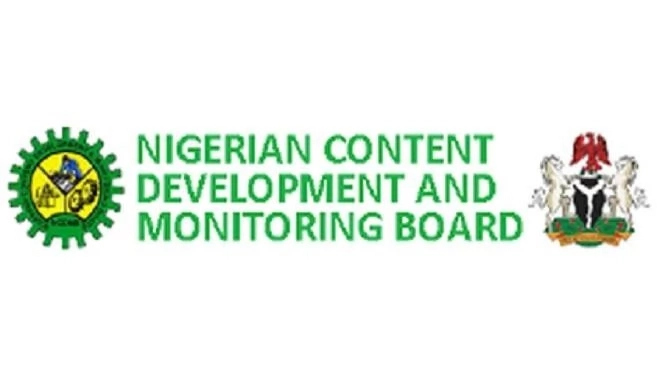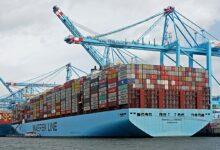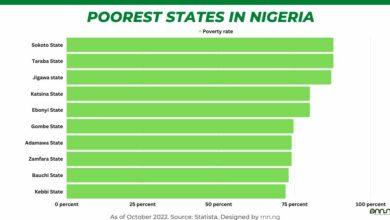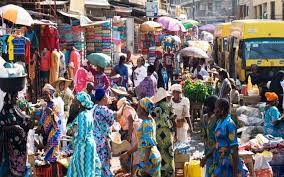7 Problems Of Nigerian National Development Industry And The Possible Solutions
What Is Nigerian National Development Industry?
This is seen as continuous Progress, which is critical to the sustenance and growth of the Nation, especially among sectors of Country’s Economy.
A Country is deemed as Developed, if it can provide qualitative standard of living to Citizens, using the different sectors of Economy, like Infrastructure, Agriculture, and Information Technology.
👉 Relocate to Canada Today!
Live, Study and Work in Canada. No Payment is Required! Hurry Now click here to Apply >> Immigrate to CanadaThe high level of Progression of Economy can be achieved, through good governance, Social-Political and Economic Stability.
Read Also: 10 problems in Nigeria oil and gas industry and possible solutions

Other Problems are Urbanization, over Population, Poverty, Rural Stagnation, growing inequalities growing between Underdeveloped Countries like Nigeria and Developed Countries (i.e. France, United Kingdom, and Germany).
Nigeria has not been able to make meaningful Progress, over the years. Mismanagement of Natural Resources, bad Leadership, lack of consistent Economic Policies, have made the different Sectors of the Economy, greatly Lacking and unproductive.
If Security problems, Corruption and bad governance, are not checked, Nigeria will make very slow sustainability, in regards providing a better standard of living, for its citizens, and ensuring effective Economic growth.
In addition to ensuring National Development Industry in Nigeria, there must be assurance to provide physical protection of lives, and properties of the Citizens.
According to Nigerian Authors, Tolu Lawal and Abe Oluwatoyin,(2011), Nigeria National Development, is defined as that continuous progression critical and essential, if it can provide great opportunities to not only the Rich , but also to the Poor or Average Class in the Society. This is to demand that Poverty and Social Inequality, be removed drastically or reduced.
Also stated by Naomi (1995) described that National Development does not only involve Economic Development, but the creation of Equitable Distribution among Citizens, States and Agencies.
👉 Relocate to Canada Today!
Live, Study and Work in Canada. No Payment is Required! Hurry Now click here to Apply >> Immigrate to CanadaIt also requires providing good Health Care, quality Education, Housing, other essential services that encourage the collective effort to improve Individuals and quality of Life.
Chrisman (1995) stated that National Development means societal advancement, where the improvement for wellbeing of Individuals, are generated through strong Partnership with all sectors of Economy, Corporate Bodies, and other relevant bodies in the Society.
National Development of a Country is said to be progression on the advancement of Social-political, Economic, and Religious advancement of a Country or Nation.
The Term Industry, is defined according to Cambridge English Dictionary, as Economic activity. It is also Concerned with the processing of Raw Materials, and manufacturing of goods in Factories.
Based on these definitions, Nigeria National Development Industry is easily stated, as actual progression towards Economic growth, Equality, and providing essential services such as good Education, Health Care, equal Distribution of Natural Resources, and providing better standards for Citizens.
This can be achieved greatly by active Public, and Private collaboration in form of Corporate Bodies, Non-Governmental or Business Organizations, operating in the different sectors of Economy.
Read Also: 10 Challenges Facing Nigeria Film Industry and Possible Solutions
Evolution of Nigeria National Development Industry
Nigeria, since 1960, after Independence from colonial rule, have looked for ways to promote sustainability, growth, progress and advancement in Industries, established in the different sectors of Economy.
Sectors of the Economy which if focused on, will bring the country to its great heights, and bring the Citizens, to live above Poverty level. These sectors of Economy includes the Oil, Mining, Gas, Agriculture, and Information Technology.
The Country have carried out different experience in ensuring for that desired economic growth, and attempts to improve the lives of it citizens.
Two years after independence, a Policy known as the National Development Policy, was formulated between 1962, and 1968.
The Plan was to set targets and objectives, towards providing Nigerian Citizens, with the opportunities, for sound Education, good Health care, employment that could help improve lives for the better.
The Policy failed due to lack of funds. This is because the Country expected most of the Finances, will come from local and foreign investors, which were external forces.
This is to mean that Nigerian government was not to provide money for the Policy, but seek other means of assistance.
However, Nigeria was not able to raise enough Funds to carry out the Policy, properly. About fifty percent of the Resources to be used for the Policy, was needed.
Only about fourteen percent of Resources coming from external forces, was ever received, and accounted for by Nigerian Government.
The Policy could not work out because there was very low Information and Orientation. Nigerians living in Rural Communities, were not given adequate Consultations.
The Policy failed mainly because Nigerian Government had not reached out to majority of its People, about the Plan. Over the years, Nigeria as experienced Political Instability due to bad Leadership attributed mainly to the past military regimes.
Even as Nigeria is in Democracy, the Country is yet to adjust. Bad Governance among leaders, due to their lack of commitment, still plagues the Country, which is seen as the most Populous Black Nation in the World.
The Country is rated the richest county in Africa, ahead of South Africa and Egypt. Nigeria had the Gross Domestic Product (GDP) of about 1, 192.00 million of International dollars, annually, since 2015.
Nigeria also experienced lack of good governance due to Leaders, failing to show commitment to progression and ensuring giving quality standard of living for Nigerian Citizens.
According to an author, Mimiko, states that Nigeria still practiced Neo-colonial Economy, even after the Country’s independence. Leaders who resumed offices used the Machineries of the colonists, who had no targets to ensure Development of a Country or Nation.
High level of Corruption and Indiscipline soon became the order of day with Leaders only interested in Capital accumulation than seeking for the welfare and interests of Nigerian Citizens.
A corrupt Nation could hardly has Sectors of the Economy functioning, effectively, and that Leaders who are not interested in progression will only succeed in repression of Economic Growth and sustainability for its Citizens, Nigerians will not be able to boost of quality Education, Healthcare, good employment, and a better standard of living for every Nigerian.
Nigeria soon faced the problem of reliance on only one source of Natural Resource, which is Crude Oil. Since the Oil boom, in the 1970s and the 1980s, Nigeria enjoyed a lot of revenue generation from Crude Oil.
Nigeria, which is the most populous black Nation, in the World, soon became known for Crude Oil, as it main source of Revenue. Nigeria is one of the world producers of Crude oil.
However, Nigeria, on relying on Crude Oil, failed to channel growth to other sectors of Economy. Agriculture was Nigeria’s main source of generating Revenue, soon took the back seat.
Nigeria’s Economy crashed due to World Recession in 2007. This was due to the earning of the Country’s GDP falling for two consecutive quarters, the rate of Housing demands had declined and unemployment was on the increase.
Nigeria’s GDP had declined because of the Oil Prices’ fall. This had aided in Nigeria losing a lot of Revenue generation. The major reason for the Country’s fall to recession, was because of not concentrating in other sectors of Economy to ensure Revenue generation, from other Natural Resources like Steel, Gas, and Agriculture.
In 2016, Nigeria experiences another severe Recession. According to the Country National Beau of Statistics, said that Recession was the worst in 29 years.
The Beau was able to state that there other factors that contributed to the nation’s total economic collapse. The factors were over dependent on foreign goods, bad economic policies, delay of national budget, and wastage of natural resources, militancy. Also is the failure of the relevant regulatory body Central bank of Nigeria, to act swiftly to control the hazard.
Nigeria has looked for other ways to improve the lives of its citizens, by introducing other programmes such as the Vision 2020 Four Point Agenda.
This was to target Nigeria being one of the twentieth greatest Economies in the World by the year, 2020. The Agenda included the different sectors of economy which is Polity, Infrastructure, Health, Agriculture, Manufacturing, Education, and Macro-Economy.
The Country’s expectation is Polity: ensuring for stability, harmony, and peaceful nation. Another expectation is the macro=economy: meaning that Nigeria is expected to have stable and globally economic but competitive Economy.
The target GDP is ranged from $900 billion and the capital income not less than $4000 per annum. The Agenda seeks for adequate Health care, better infrastructure, better educational system, competent, manpower, sustenance of life expectancy to not less than 70years, combating of diseases like Malaria, and HIV/AIDS.
The Global Initiative Agenda, adopted by Nigeria, also seeks for better Food Security, a vibrant manufacturing sector with earnings of GDP, not less than 40% and a more technologically enabled Agricultural Sector.
Another Programme is the Economic Recovery and Growth plan, which was launched in 2017, to effect to target the year 2020. The plan was to compliment the vision 2020, to enable Nigeria become a potential player in the World’s Economy.
This is by ensuring continuous progress map sheet for vital sectors of the Economy, like Agriculture and Information Technology.
Read Also: Problems and Prospects of Livestock Industry in Nigeria
Problems Of Nigeria National Development Industry:
1. Globalization
Globalization is the integration of political, economic, cultural, financial, ecological, and technological systems in a global economy. It is an idea that the World has become interdependent and a global village.
National economies all over the World are now allowed to Trade and compete in doing business. However, it has done more harm than good for most Developing countries.
The widening gap between the poor and the rich is still wide. Developing and developed countries, have faced inequality of Technology Transfer, Innovation, Import duties and tariffs.
Developed Countries place heavy duties, on Developing Countries, subjecting them to harsh Trade. Globalization has enabled for Free Trade, among Counties to do Business.
Regional trade Agreements are made by Associations like the African Union, European Union who have collective goals and Aspirations to do Business, free from Imports Duties and Tariffs.
The harsh reality of Regional Trade Agreements is that it appears discriminatory, to other Countries outside the Trade deals.
For instance, the Economic Communities of West African States, (ECOWAS), allows for free movement, free Trade and access among West African States only.
European Union allowed its Nationals, to free Travel, Trade, Work Permit, and Education within any Counties, under the Association (EU).
For Nigeria, Globalization, has been harsh. The country has been unable to adjust to the global economy. The Country is faced with poor Technology Innovation, Information technology in relations to Telecommunications, Wireless Network and Internet.
Also, Nigeria is faced with poor quality of manufactured goods not fit for Imports. More Primary Commodities, flooded in the foreign and local Market, than processed goods, which would have been of better economic value to the Country.
Nigeria is yet to obtain ways, to improve its sectors of Economy due to inability joining the right Trade Agreement, which will attract foreign investors.
Through foreign Investors, Industries of the different sectors of Economy will fare well bringing about Diversification. Too much Reliance of Oil as Revenue is no longer an option. There is need for direct foreign Investment that will create better opportunities, for Nigerian Citizens.
2. Poor Human Capital
There is need for Nigeria, to invest in Human Capital Investment. There is need to have a competent workforce, that is able to operate the different sectors of Economy, with diligence and effectively.
Nigeria has experienced that in order for the Country to target being one of the Twentieth greatest economies in the World, there was need to strengthen the Educational Sector.
The Sector must be well funded to meet the needs for upgrades to suit international Standards. Critics who show the Vision 2020, implemented in Nigeria, saw that there was need for a better structure in the Educational System.
Recently, on Thursday, 22nd of March, 2018, Bill Gates, an American Business Tycoon, addressed in his speech during a meeting for the National Economic Council held in Abuja.
He claimed that claimed that Nigeria will not be able to develop effectively without prioritizing physical capital over human capital.
There was need for the country to invest in is people in order to achieve economic growth. He had stated that the recent Economic Recovery and Growth Plan, launched was made in an objective to meet the needs of the Nigerian people.
He complained that it cannot be actualized because when implementation, enforced, does not meet the citizenry’s needs.
Read Also: 10 Functions of Nigeria Bank of Industry
3. Poor Infrastructural Development
According to Bill Gates, the Microsoft Co-founder, and American Businessman, in his speech on Nigeria’s Economic development and Recovery Plan, said that Infrastructural Development if not available can cripple the Economy.
Infrastructural Development includes provide Health care, good Roads, Schools. Libraries, Factories, to enable effective Productivity.
At the 2017 Nigerian Bar Annual Conference, emphasized the need for Building, and Restructuring. There was claims from the Association, that for the Nigerian Business and Industries to strive, there was need to ensure progress in institutional building, and through technology networking framework.
This is to say that if Nigeria does not enable for good Roads, Water, Electricity, good Health care services, it does not yield for good productivity.
This is because, Nigerian citizens who are not given the opportunity to better their lives, cannot contribute effectively to the Country’s Economic and Sustainable growth.
4. Lack of Technology Innovation
Nigeria is in need of better Technological Systems, to ensure enable for better productivity in our Industries. Better Wireless network, or Internet Networks provides to bridge gaps to enable easier access to enhance Business opportunities.
Nigeria, on the other hand, is yet to completely ensure better services in Information Technology. Many States, especially in some Rural Areas, are yet to enjoy full Telecom services i.e. using of mobile network, to communicate. Even the use of Wireless Services or Internet are mostly available in Cities.
There is need for more suitable E- centres or cyber cafes, to allow for Nigerian Citizens easier access. High cost of Internet Providers, towards Internet and Wireless services, have made it difficult for businesses or Industries of different sectors of Economy, to use the Information Technology effectively.
Technology Innovation is very lacking in Nigeria due to high cost of acquiring it. There is need for adequate funding from Nigerian government, to acquire such Technological Innovation and Networking.
Inadequate provision of Technology, has caused the Country from reaching its potential, in Nation building and Economic growth.
5. Corruption and Bad Governance
Nigeria has the problem of bad Leadership. Leaders in Government are mostly not interested in the National building and Development.
The Leadership in Nigeria is alleged to be more interested in scoring points of Citizens, to win Elections, and acquire Public Funds.
Leaders in Nigeria, since the Military regime until Democracy, have continued to loot and waste Public Funds, which they use to their own selfish needs.
An example recently, is when Nigeria had refused to sign a vital Free trade Agreement with other African Countries. The Pan African Free Trade Agreement will be said to provide free Trade, little or no Import duties, free movement, unrestricted Travel, and ability for Nigeria to sell their domestic Products, to other Countries in Africa.
Nigeria is accused to not wanting to sign the Free trade Agreement because Capital Accumulation, got from retail prices, will decline. Nigerian Leaders have been accused to be more interested in expanding the National Reserves, without ensuring the welfare and interest of its citizens.
6. Poor Government Policies On National Development
Nigeria had developed different plans to aid for National Development Industries. The Initiative of the Vision 2020 and the Economic Development and Recovery Plan was aimed to ensure building effectively by fighting insecurity, providing Health Care, quality education, and ensuring for a vibrant and competitive Economy. Unfortunately, Nigeria has difficulty implementing the plan effectively.
There has been criticism that Nigerian Leaders, have continued to implement without bearing in mind that Nigerian Citizens, need to be provided for.
There is need for Nigerian Government to put in better enforcement mechanism that will ensure rapid National Development. The Enforcement mechanisms in Nigeria in implementation, is partial, corrupt and not transparent.
7. Militancy
Nigeria is faced with a lot of civil unrest which has affected Industries of different Sectors of Economy in Nigeria. Multinational Companies like Shell, has tonnes of Oil barrels whenever, there was an Oil pipe line Vandalism, or kidnappings of Expatriates, by Niger Delta Avengers.
In Northern part of Nigeria, there is the Boko Haram Sectorial Group, who have committed a lot of atrocities, from killing, bombing and terrorising of vulnerable Citizens’ from their Homes and Livelihood. In Borno State, Nigeria, Farmlands, were destroyed resulting in food shortages in the Agricultural Sector.
Further, Nigeria has faced setback to economic growth and Development. This is due to suspected HerdsMen Attacks on Farmers, who attack small communities in States in Benue, Taraba, Zamfara, and Ekiti States.
This has resulted in shortages of Animal Production like Cattle Rearing. Nigeria cannot function effectively with insecurity, and civil unrest like Militancy, in the Niger Delta or the Northern Nigeria insurgency, occurring. Problem of this kind of insecurity, has left the Country vulnerable and has crippled Economic Development.
Possible Solutions For Nigerian National Development Industry:
1. The Need For Skilled Manpower
There is need for a vibrant Educational Sector equipped to meet Standard, to building effective Man power, who are skilled to operate in different sectors of the Economy.
Critics like Professor Wole Soyinka, a Nigerian Author and Activist, says that for the Economic Plans like the Vision 2020, to be effective, there is need for facing the main problem of Country’s under development, which is Human Capital.
He emphasised that the Educational Sector, from the early stages of growth must have solid foundation. Curriculum of Schools should be upgraded to meet international standard to enable the Nigerian Citizens, more employable, very skilled to get jobs.
Training a skilled Manpower, ensures for better productivity and rapid progress. This can be done by ensuring up to date knowledge to train properly.
According to Dangote Aliko, in his speech recently in the National Economic Council says that although as a business man, h[s duty is to employ staff, but acquire a more skilled manpower.
He stated that that business will only be attractive if he employed individuals, who are skilled and very sound in Health.
Also Bill Gates, also said that there is no purpose of building infrastructure, if there is no investment in Human Capital or Man power. He stated that Man power was the greatest asset for National development to exist, in Nigeria, like any other Nation.
Ensuring that Nigerian Citizens are better trained will reduce unemployment and make them better skilled to face challenges of a global economy.
Read Also: 10 Hottest Professional Courses needed in the Oil and Gas Industry
2. Accountability And Good Governance
Nigeria faces challenges of keeping accurate Report and Auditing. This has resulted in wastage of Natural Resources and looting of Public funds, by Government Officials and Political Leaders.
Initiatives like the Extraction Industries Transparency Initiative, have helped to ensure that Revenue generated by Companies in Nigeria and passed on to Federal Government, are properly accounted for.
It gives the public, an opportunity to see what Government has spent or saved. Over the years, this initiative has been used to discover traces of missing Revenue Money, not properly accounted for in the Oil Sector.
Giving better Reports, or auditing ensures Transparency. It also promotes good governance and ensures Economic growth.
3. Effective Implementation Of Nigeria Economic Plan And Policies
Better Enforcement Mechanisms must be put in place to ensure that the Government Economic policies, ix carried out. This Mechanisms must not be partial, just and must abide by the law.
The Enforcement Mechanisms in form of Agencies should be allowed to arrest and charge offenders to court. Nigeria has the Economic Financial Crimes Commission, (EFFCC,) a law enforcement agency, with the license of Arrest and charging to Court, offenders that loot Public funds.
The Agency have been able to arrest public servants, ranging from Judges, Politicians, business men and women, who may be involved in fraudulent activities, from Cybercrime, Bribery, and stealing of Public Funds.
Critics say that unless there is an effective Mechanism that can implement these Policies, rapid National Economic Development, will be difficult to achieve.
4. Provide Technology Innovation
Nigeria is faced with challenges towards Information Technology. Technological Innovation can be acquired to improve better services in the Sectors of Economy.
Agricultural Sector needs improvement from in its traditional practices, like Nomadic Pastoralism, planting, and harvesting Procedures. The country will need funds for the latest equipment in Technology, to promote better productivity and enhance better Economic Growth.
Nigeria Oil Sector, must find better ways to ensure better ways to use Technology for Subsea drilling and Reservoir of Crude Oil. This would include building better Refineries, and decommissioning facilities used to remove broken down equipment.
Technology Innovations can be used to find better alternatives of gas flaring. Multinational Oil Companies, have decided on converting into Liquefied Gas to be used for Home Cooking, to Nuclear Energy component for Power Generation.
This is to say that Nigeria can achieve its great potential to being a great Economy, through the aid of updated Technological Innovation and Networking. This helps the Country meet up with the challenges, of the ever demanding, global Economy.
5. Better Revenue Allocation Sharing
Nigeria should have better Revenue distribution to Local government, and State levels from Federal Government. Ensuring better Equality Distribution guarantees better sustainable Development.
It also ensures that collective progress is made on Sectors of Economy. Effective Distribution can be effective, if there is no delays in the National Budgeting.
It allows for transparency, good governance, reduces corruption. Nigerian critics claim that Equal Distribution allows for checking any form of Public Fund Mismanagement.
Wastage of Natural Resources, is totally reduced. Effective distribution removes the widening gap between the Rich and Poor.
Opportunities for better living for Nigerian Citizens will be ensured by providing better services like Education, Health care, Security and very vibrant Competitive Economy.
Effective Revenue sharing reduces allegation of marginalization, civil unrest, militancy or religious insurgency. This allows for better Economic growth, because the security stability, and Political Stability is ensured.
Although, there is agitation for equal Distribution. Critics, say that Revenue should be shared be shared in accordance based on the Percentage, generated by a State.
This is to say that the more earnings, a State makes, should receive the highest Revenue. This has caused many controversies, as some States claim to be, not being viable, to generate their own Revenue.
States like Lagos State, Nigeria generates over N302 Billion in 2017 as compared to N178 Billion the Previous Year. States who have Natural Resources, claim to want the biggest share of the Revenue earning.
Nigeria in order to determine swift Economic growth and National Development, by ensuring an effective Revenue sharing Formula acceptable and Transparent enough to follow by Nigerian Citizens.
6. Foreign Investment Initiatives
Nigerians need to ensure initiatives that could promote National Development. An effective but attractive Taxation structure, for foreign Investors, which compels can enable for Revenue generation to enable for services like good
Health care, Schools buildings, quality Education, and Technology. This enables for the Country to attract external Money into the Economy.
Sectors of the Economy, will function more effectively as adequate funds, will be used to ensure Economic stability. Growth and nation building.
This includes focusing on Infrastructure Development and providing funding for factories, in sectors of Economy to enhance Productivity.
Foreign Investment helps government with long term projects such as construction of Roads, Bridges, Refineries, or Housing.
Foreign Investment allows for better Partnership and trade between the benefiting Countries. Nigeria, through Foreign Investment can strengthen Companies’ earnings and bring about enhancement of business opportunities. This is a necessary criteria for Nigeria to achieve National Development.
Conclusion
Nigeria must begin to look for better steps to ensure National development. Economic growth and National Development compliment to ensure better living for Citizens, better services like good roads, water, bridges and vibrant competitive Economy.
This can only be achieved if there is security, political stability, reduced corruption, good governance, better Technological Networking and Innovations. National Development Industry if managed effectively, could ensure improved opportunities for Nigerian Citizens.
Key Words: Revenue, Initiative, Economic Growth, National Development Industry, Projects, Companies, Nigeria, Infrastructure, Productivity, Sectors, Health Care, Foreign Investment, Governance, Corruption, Governance.
References:
Abdullahi Sadiq, A New Vision 2020 For Nigeria At 49: Challenges And Possibilities>Inigerian.Com>Accessed On 22nd March, 2018
Adekunle, Lagos Generates Internal Generated Revenue Than 31 States, Combined, Vanguard Newspaper>Vanguardngr.Com> Accessed On 22nd March, 2018.
Temitayo, Seven Reasons Why Nigeria Is Suffering Economic Recession, Nigeriamonitor.Com.>Accessed On 22nd March, 2018
Lawal Tolu, Oluwatoyin Abe, National Development In Nigeria: Issues, Challenges, And Prospects, (Journal Of Public Adminisration And Policy Research Vol 3(9), P.P.237-241, Http://Www.Academicjournals.Org/Papr >Accessed On 22nd March, 2018.
Owoseye Ayodamola, Economic Blue Print Does Not Address Nigerian’s Needs-Bill Gates, Premium Times>Premiumtimeng.Com>Accessed On 21st March, 2018.






